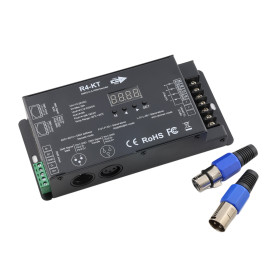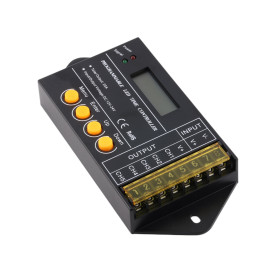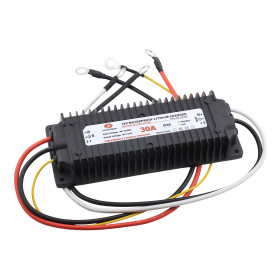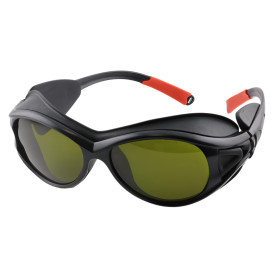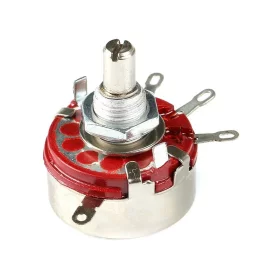Filter By
Resistance
Home
- LEDsaddremove
- Componentsaddremove
- Magnetsaddremove
- Electromagnetsaddremove
- Fansaddremove
- Battery
- Wires
- Indicators
- Thermostats
- Switches and toggle switchesaddremove
- Relays, magnetic contactsaddremove
- Fuses
- Printed circuits
- LED holders
- LED lenses
- LED drivers
- Accessories for LED strips
- Thermal paste
- Measuring equipment
- Connectors
- Terminal blocks, conductors
- Laser diodes, modulesaddremove
- Resistorsaddremove
- Capacitors
- Semiconductorsaddremove
- Crystals, Oscillators, Resonatorsaddremove
- Shrink tubes
- Transformers, Inductoraddremove
- Transistorsaddremove
- Structural componentaddremove
- Antennas
- Speakers and buzzers
- Electric motorsaddremove
- Heatingaddremove
- Magnets
- Power suppliesaddremove
- LED strips
- LED modules
- Aluminum profiles and accessoriesaddremove
- LED, CCFL rings
- Lampsaddremove
- Car bulbsaddremove
- Socket H1
- Socket H3
- Socket H4
- Socket H7
- Socket H8
- Socket H11
- Socket H16
- Socket H13
- Socket H27W
- Socket HB3, HB4
- Socket BA9S
- Socket BA15S
- Socket BA15D
- Socket BAU15S
- Socket BAY15D
- Socket BA20D
- Socket B8.5D - B8.3D
- Socket T3, T4.2, T4.7, T5
- Socket T10, W5W
- Socket T20, W21W
- Socket P13W
- Socket P15D
- Socket PX15D
- Socket PW24W
- P26S socket
- Socket P45T
- Socket Sufit
- BMW marker
- Accessories for car bulbsaddremove
- Accessoriesaddremove
- Smart home
- Shielding technologyaddremove
News


Potentiometers
Potentiometers are versatile, adjustable resistors used in electronic circuits to control voltage, current, and signal levels. In automotive and LED lighting applications, potentiometers play a critical role in adjusting brightness, calibrating sensors, and fine-tuning control circuits. These components come in various designs—such as rotary and slide types—with different resistance values and power ratings to meet specific circuit requirements. With precise adjustment capabilities and robust construction, potentiometers ensure reliable performance and stability, making them an essential element for both prototyping and production in high-performance lighting systems.
Purpose and Usage
- Adjustable Control:
Potentiometers allow users to finely tune voltage and current levels, which is particularly useful in LED drivers for dimming or brightness control, as well as in sensor calibration and audio applications. - Circuit Calibration:
They are used to adjust circuit parameters during design and manufacturing, ensuring that the final system operates within desired specifications. - Versatility:
Available in multiple formats (rotary, slide, and digital), potentiometers can be integrated into a wide range of applications, from consumer electronics to automotive lighting and industrial control systems.
Advantages and Technical Parameters
- Precision and Stability:
High-quality potentiometers offer tight tolerance and low temperature coefficients, ensuring that their resistance remains stable under varying environmental conditions. - Ease of Integration:
Their compact, surface-mount or through-hole designs make them ideal for high-density PCBs and automotive applications where space is limited. - Customizable Resistance Range:
With a wide range of resistance values available, potentiometers can be selected to match specific circuit requirements, providing the necessary adjustability for precise control. - Key Equations:
- Voltage Divider Principle:
When used as a voltage divider, the output voltage (VoutV_{out}Vout) can be calculated as:
Vout=Vin×R2R1+R2V_{out} = V_{in} \times \frac{R_2}{R_1 + R_2}Vout=Vin×R1+R2R2
where R1R_1R1 and R2R_2R2 are the resistances on either side of the wiper. - Ohm’s Law:
V=I×RV = I \times RV=I×R
This relationship helps determine the correct resistance value needed for a given current and voltage.
- Voltage Divider Principle:
Guidelines for Selecting the Right Potentiometer
- Determine the Required Resistance Range:
Assess your circuit requirements to select a potentiometer with an appropriate resistance value and tolerance. - Consider the Form Factor:
Choose between rotary, slide, or digital potentiometers based on the available PCB space and the desired user interface. - Evaluate Environmental Factors:
For automotive or industrial applications, opt for potentiometers that offer robust construction and resistance to temperature variations, vibration, and moisture. - Review Power Ratings:
Ensure the selected potentiometer can handle the expected power dissipation in your circuit to avoid performance degradation over time.
By carefully considering these factors, you can select potentiometers that deliver precise control and long-lasting performance, enhancing the efficiency and reliability of your LED drivers, sensor circuits, and other electronic systems.
Top selling products in the category
- 1
 8.53 €
8.53 €
In stock - 2
 3.37 €
3.37 €
In stock - 3
 3.73 €
3.73 €
In stock - 4
 4.50 €
4.50 €
In stock - 5
 6.73 €
6.73 €
In stock - 6
 0.50 €
0.50 €
In stock - 7
 5.60 €
5.60 €
In stock - 8
 3.63 €
3.63 €
In stock - 9
 Knob for potentiometers type 3590SRotary knob for potentiometers type 3590S. Fixing with steel worm (Allen).3.00 €
Knob for potentiometers type 3590SRotary knob for potentiometers type 3590S. Fixing with steel worm (Allen).3.00 €
In stock - 10
 Knob for potentiometers KYP16-16-4, ⌀16mmRotary knob for potentiometers KYP16-16-4.0.40 €
Knob for potentiometers KYP16-16-4, ⌀16mmRotary knob for potentiometers KYP16-16-4.0.40 €
In stock
Active filters
- Resistance: 15 kOhm, 15K clear

